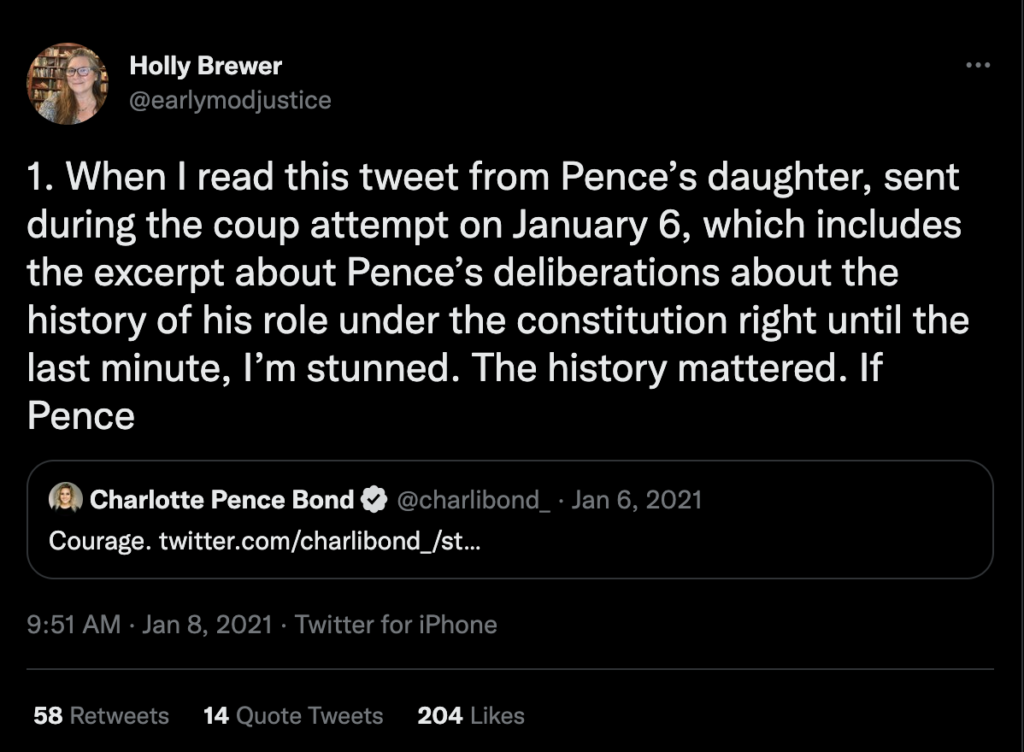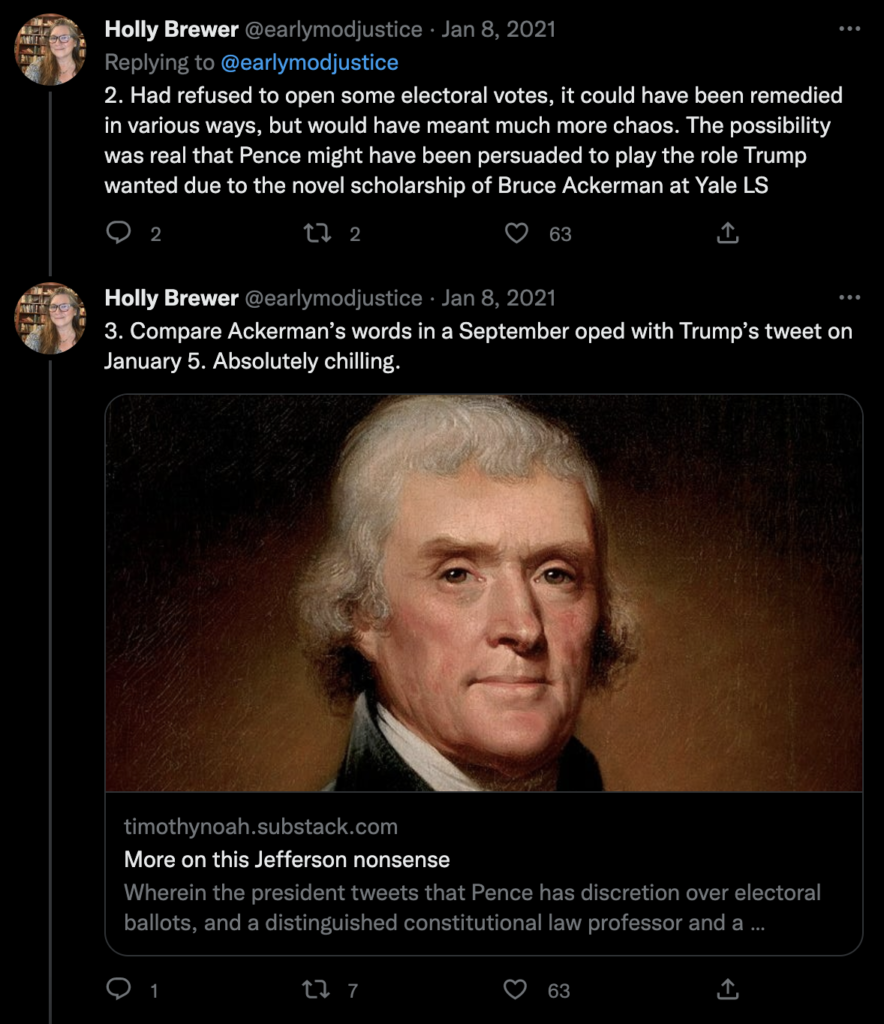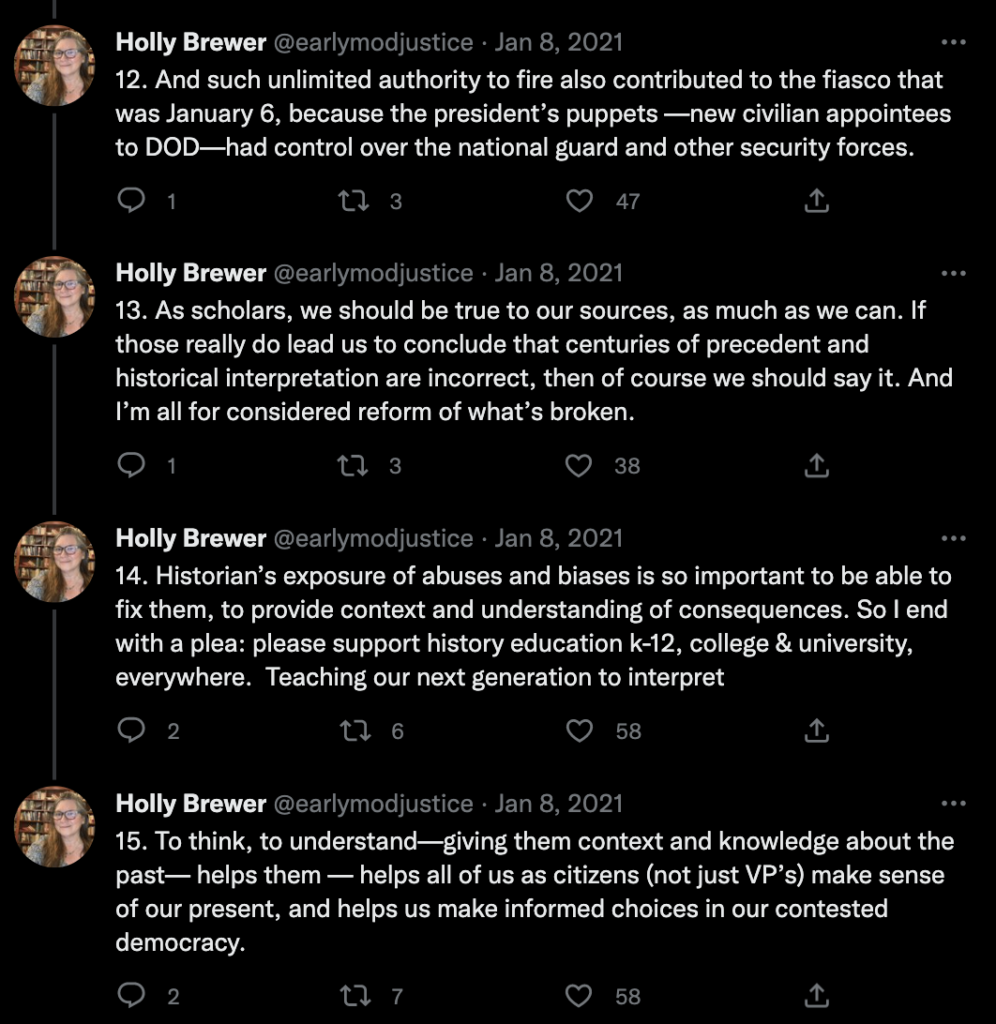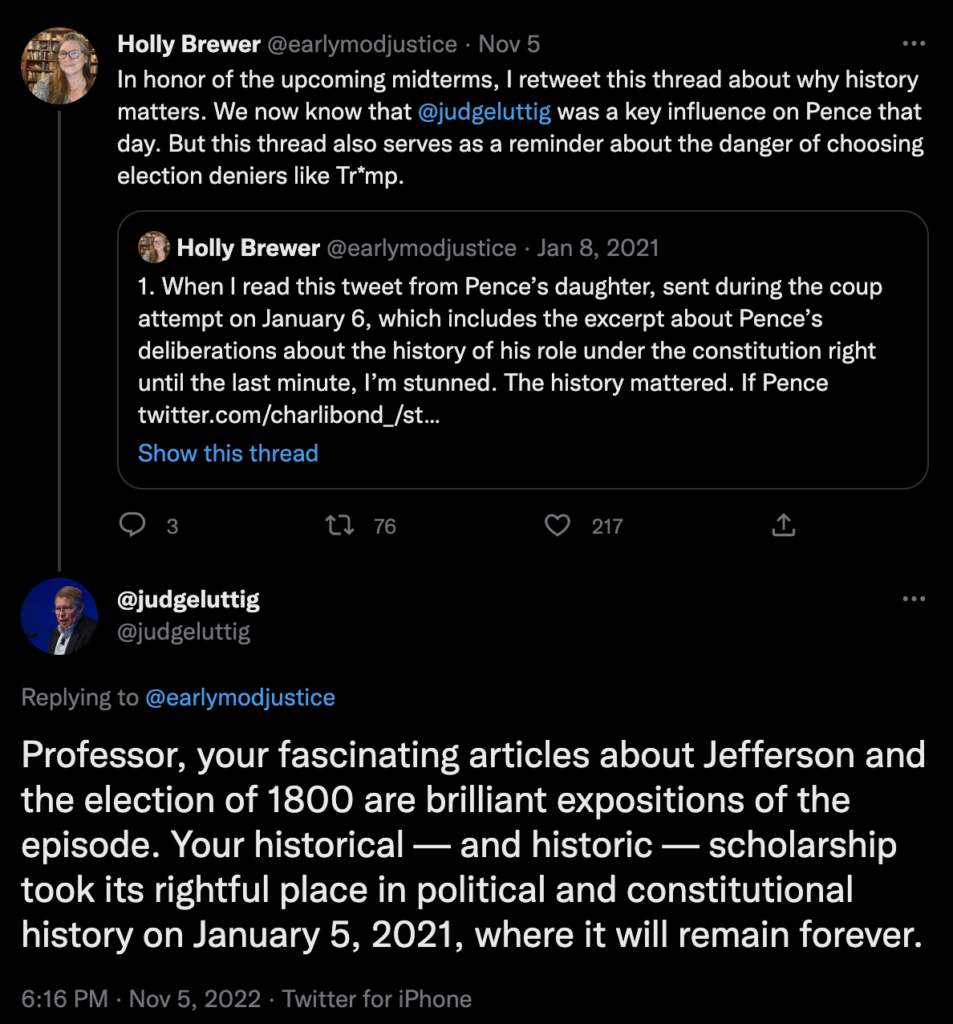It is now widely known that then President Trump pressured his Vice President Michael Pence to “be like Jefferson” on the morning of the coup, and to refuse to count some states’ electoral ballots. Pence refused, despite intense pressure. Why? Judge J. Michael Luttig advised Pence that he had no historical precedent for refusing to count any electoral votes, that in fact the supposed Jefferson precedent was bogus. But how did Luttig decide? It turns out he read my articles.
Between Dec. 31 and Jan. 5, after I had watched this claim explode both on right wing websites and in the speeches of then president Trump and had investigated its origins, I published two articles, in Backbencher and the Washington Monthly. On the morning of January 6, I watched in cold fascination to see what Pence would do; I was watching him count the electoral ballots when the first windows of the Capitol were broken. And I watched as his daughter posted the letter, explaining how his choice had been informed by history.

On Jan. 8, 2021, I wrote a series of tweets about how crucial historical precedent was in Pence’s decision about whether he could refuse to count electoral college votes as Trump was pressuring him to do. (Read the original Twitter thread.) I also reproduce it here.






For more on this history, see Tim Noah’s overview on November 7 2022, in Backbencher. See “Backbencher Saves the Republic.”
“In the days leading up to January 6, 2020, President Donald Trump tried everything he could think of to persuade Vice President Mike Pence that Pence had the power to toss out electoral ballots during the official Electoral College tally in the Senate.”
